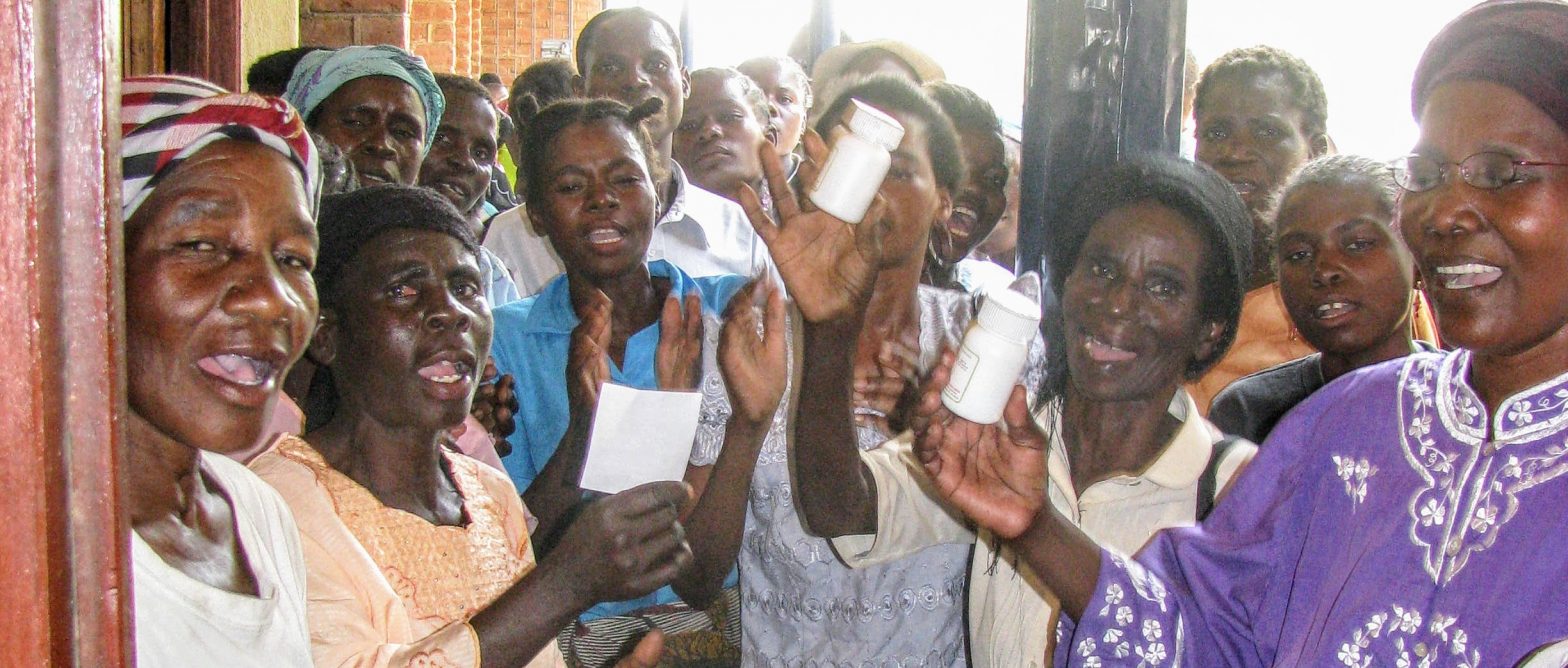Part 7 for 16 Days of Activism Against Gender-based Violence
December 1, 2018 – World AIDS Day: In the 1980s, the first cases of AIDS were a shock to everyone. It took months for top researchers to understand it. In Africa, where the pandemic became most widespread, the campaign to halt the spread of HIV/AIDS forced both women and men in rural and urban communities to rethink gender roles and other traditions that had prevailed for thousands of years.
Gender fueling the spread of HIV. In Africa, while males do not necessarily have any more sexual partners in a lifetime than men in other regions, they tend to have them concurrently. And women were socially conditioned to not say “no” to sex. In addition, in some areas, sex was part of traditional rituals.
Communities take up the challenge. In such situations, and particularly in a largely rural society, mere “messaging” is never enough. Organizations such as those in the Movement for Community-led Development, needed to launch massive campaigns to provide accurate education about HIV/AIDS to grassroots community leaders – or “animators” – who in turn would educate all the members of the community.
Beyond the Facts: While having people know the facts is crucial, it has also been necessary to create spaces where community members can analyze their own situation – identify their own barriers to halting the spread of HIV (basically their own gender analysis) -and launching their own solutions. In some cases, community members created solutions that the NGO community organizers would have never imagined. Here are some examples from Malawi, which has a high infection rate:
- One group of women complained that they needed a way to control the use of condoms themselves. The animators had no idea there were such things as female condoms, until they contacted the UN Population Fund (UNFPA) and discovered such things did exist but “nobody wanted to use them.” The women were provided female condoms and – since they had asked for them – they felt they had “invented” them. They publicized them throughout their communities – spreading the word that “sex was better with them than with male condoms.”
- In another village, there was a closely held tradition of cleansing the “spirit of death” from a home after a man had died, by having someone have sex with the widow – an obvious disaster when the man died of AIDS. The elders said “we have to remove the spirit of death” but concluded they could create a “new tradition” of having a married couple of that family have sex in the home.
- Campaigns were held to promote voluntary testing and antiretroviral (ARV) treatment, which was widely successful but was not taking hold in one community, with no explanation. The community members carried out some very private interviews, and learned that the local health workers was not being confidential about test results. He was fired, and the community animators informed everyone that in the other communities there had been no problem with confidentiality, and trust was restored.
Living Positively: Initially, microfinance groups in Malawi were reluctant to loan to HIV-Positive people, on the assumption these people would not have long to live – despite the fact that ARVs were becoming widely available. To overcome this stigma, “Living Positive”with HIV support groups were established, and microfinance organizations reserved a special part of their capital for loans to those groups.
Investing in Community Health. The massive international effort to fight HIV/AIDS initially had the unfortunate side effect of pulling the already-scarce health professionals out of the community health system to focus on HIV/AIDS. Now, the world is coming to recognize that even “single disease” campaigns must intentionally focus on strengthening the overall community health system, and engage community members every step of the way.
Ownership and agency. As Mahatma Gandhi wrote, whatever action we contemplate, we must think of the face of the poorest person we have ever seen, and ask ourselves whether the action we take will restore her to control over her own life and destiny. Applying this wisdom has proven invaluable in the fight against HIV/AIDS in Africa – it was proven again in the response to Ebola (link) and Malaria (link) – and it is a mandate we must apply to all development activities.


